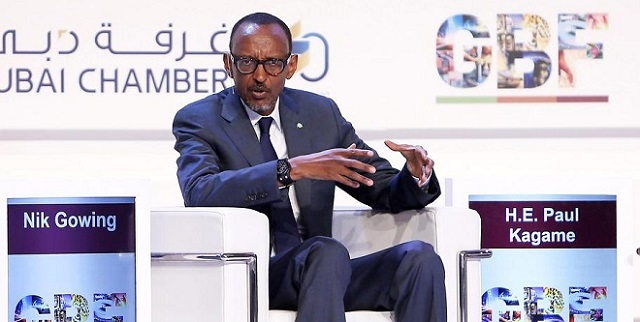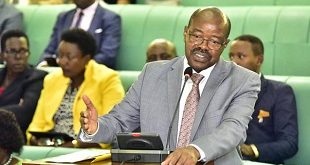
Kampala, Uganda | THE INDEPENDENT | President Paul of Rwanda has told business and political leaders and entrepreneurs that African can make great progress in getting rid of all barriers to free trade within on the continent in the next five years to 10 years.
The President was on Nov.01 addressing the 2017 Global Business Forum, Africa, held in the Madinat Jumeirah Hotel in Dubai, United Arab Emirates.
To go beyond the current level of intra-Africa trade which is estimated at around 15%, the President said requires “building knowledge and information to tackle existing bottlenecks.” He said he believes the nations of Africa are already working on that.
President Yoweri Museveni of Uganda attended the forum together with the President of Seychelles Danny Faure, Ameenah Gurib-Fakim of Mauritius, Mahamudu Bawumia, Vice president of Ghana, and Festus G. Mogae, former President of Botswana and several cabinet ministers and leading CEO’s of African and international companies.
Kagame told them that the building blocks for a barrier-free Africa, the trading blocks are already in place and are implementing the right measures to allow integration of the continent for free trade. He was speaking under the theme of “Accelerating African Integration”.
“If you look at different regions, like the ECOWAS, they have made progress especially in the area of free movement of the people,” he said, “Very significantly, if you also look at the east African region even more progress has been made in the area of Customs union and integration in the area of infrastructure.
“We can get to non-tariff trade across the borders of the continent, because if we are seeing it work in the east African region and other things are working in other regions, then it’s possible because it’s already a big step for us as a union,” he added.
He mentioned that removal of tariffs in the areas of power and telecommunications, including railway networks.
“So, you can see everything coming together with more trade, investments across countries of different regions,” he said, “In fact, the southern African block is even more ahead with intra-regional trade – which means that we are coming together, no matter the bloc that you are referring to on the continent.”
The Global Business Forum on Africa brings together over 1,000 top-level government and corporate decision-makers, including African heads of state, ministers and dignitaries, and prominent CEOs operating globally. It also has prominent entrepreneurs, heads of private banks, sovereign wealth funds, private equity firms, the UAE government and business elite, Heads of African Investment Promotion Agencies, Chief Executives representing African & multinational organisations, and world-class leaders.
This year the Global Business Forum on Africa explored the next phase of growth and development with the founders of Africa’s most innovative businesses.
The forum examined the potential for leveraging technology to accelerate growth across Africa, discuss the power of the emerging private sector and identify the opportunities for financing and partnering with Africa’s most dynamic businesses.
In 2000 intra-continental trade accounted for 10% of Africa’s total trade, and increased marginally to 11% in 2015.
Trading among members of the European Union, for example, amounted to 70% in 2015. Intra-African trade is still estimated at less than two percent (2%) of global trade.
But Heads of State in Africa recently signed an agreement to implement the Continental Free Trade Agreement (CFTA) which is expected to foster more free-trade.
The CFTA, when implemented, will also reduce the continent’s vulnerability to external shocks and is expected to enhance the participation of Africa in global trade as a respectable partner, thereby reducing the continent’s dependence on foreign aid and external borrowing.
 The Independent Uganda: You get the Truth we Pay the Price
The Independent Uganda: You get the Truth we Pay the Price


